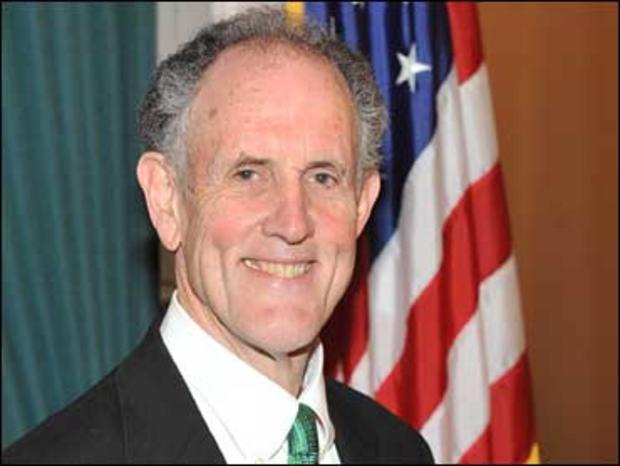"Market Chaos" Prompts Call for Review of Computerized Trades
Wall Street analysts are still not sure exactly what caused Thursday's bizarre and sudden stock market tumble in which the Dow Jones industrial average lost a record nearly 1,000 points in about 30 minutes.
While some are pointing to the Greek debt crisis to explain the drop, others have suggested it was the result of an error by a trader who entered a "b" for billion instead of an "m" for million. (A so-called "fat finger" trade.)
With about two-thirds of trading now being done electronically, a trader error can trigger a flurry of automatic sell orders - and in doing so cause the sort of market volatility once thought to be unprecedented.
In the wake of the drop, Sen. Ted Kaufman (pictured) released a statement calling for these computerized high-frequency trades to be meaningfully regulated.
The Delaware Democrat, who was appointed to serve the remainder of Vice President Joe Biden's term, said he has "been warning for months that our regulators need to better understand high frequency trading, which appears to have played a role today when the US market dropped 481 points in 6 minutes and recovered 502 points just 10 minutes later."
"The potential for giant high-speed computers to generate false trades and create market chaos reared its head again today," he said. "The battle of the algorithms - not understood by nor even remotely transparent to the Securities and Exchange Commission - simply must be carefully reviewed and placed within a meaningful regulatory framework soon."
THE SEC and the Commodity Futures Trading Commission put out a statement yesterday saying they are "working closely with the other financial regulators, as well as the exchanges, to review the unusual trading activity" and figure out what happened.
They are also, they said, "working with the exchanges to take appropriate steps to protect investors pursuant to market rules."
It is not clear whether regulations on high-frequency trades might be included in the pending financial industry reform bill; according to Joseph Saluzzi, a trader at Themis Trading, electronic trading comes with a significant set of risks.
"Previously, when sell orders hit at the same time, a market maker or specialist would buy shares to prevent a sudden crash," according to a USA Today characterization of his argument. "But those safeguards have been largely removed as electronic trading is allowed to go on with little intervention, Saluzzi says. If there are many sell orders, and if buyers decide to wait, selling overwhelms a stock much like a panic can overwhelm a bank. "
